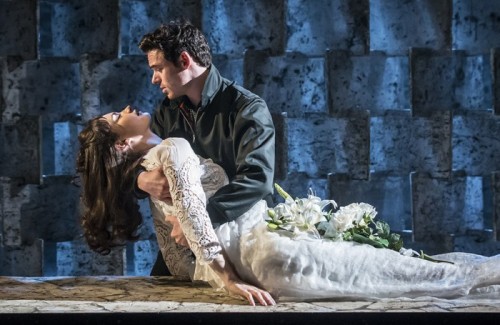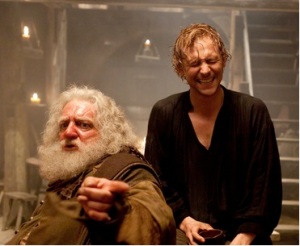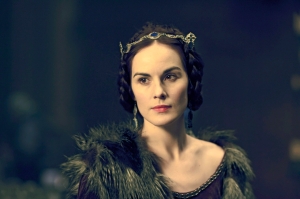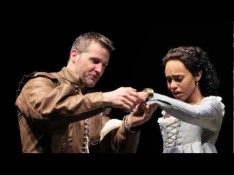I’m angry. The state of this world – racist and sexist – makes me angry. Reading Much Ado About Nothing in my moments away from the horrors of 2017 isn’t helping at all.

Nazi scum in Virginia, 2017
The big news this week is Donald Trump’s disgusting, cowardly, and hypocritical refusal to “jump to conclusions” about the Neo-Nazis and various other white supremacist groups marching around Virginia, unmasked, proud, and deadly. The other disgusting news that’s going ignored because there just isn’t enough indignation to go around is this: Johnny Depp is being welcomed into children’s hospitals in British Columbia.
Why is this wrong? Because Johnny Depp is a wife beater. No, I’m not going to call him an “alleged” wife beater, because when a woman is willing to stand up to the world’s biggest movie star and show the world the bruises she received at his hand, I believe her. Her career was not going to improve for calling out one of Disney’s highest-grossing stars. She did it because she needed to escape his violence. Yet, a couple of denials later and here he is: still getting cast in blockbusters and parading himself as a sweetheart that the public chooses to love him because he’s willing to take pictures with sick children.
 Does Depp’s magnanimity during his moments of sobriety erase the fact that he committed violence against a person decades younger than him? No. Are his deeds erased because, even though he refused to own up to his violence, Amber Heard donated her 7-million dollar divorce settlement to charities that support and care for victims of domestic violence? No. Does the time he spent getting into the beloved Jack Sparrow costume and makeup erase the fact that a hospital exposed children to a violent person, and local media applauded them for it? No. Not when, in America, five children die as a result of child abuse every day. So why do they allow this violent person into a place that is likely treating children who have suffered from extreme violence at the hands of people who claim to love them? Where is the justice for Amber, and for the children who know what it is to tremble in fear before violent parents?
Does Depp’s magnanimity during his moments of sobriety erase the fact that he committed violence against a person decades younger than him? No. Are his deeds erased because, even though he refused to own up to his violence, Amber Heard donated her 7-million dollar divorce settlement to charities that support and care for victims of domestic violence? No. Does the time he spent getting into the beloved Jack Sparrow costume and makeup erase the fact that a hospital exposed children to a violent person, and local media applauded them for it? No. Not when, in America, five children die as a result of child abuse every day. So why do they allow this violent person into a place that is likely treating children who have suffered from extreme violence at the hands of people who claim to love them? Where is the justice for Amber, and for the children who know what it is to tremble in fear before violent parents?

Claudio repudiates Hero as early as 1598
In the late years of the 1590s, William Shakespeare wrote Much Ado About Nothing, a comedy in which an angry man convinces his powerful stepbrother and another fellow soldier that this soldier’s betrothed is cheating on him. He provides them with the shadiest evidence, indeed, a sexual pantomime between servants that they viewed from a distance, in the dark of night. The Duke and Claudio, the betrothed soldier, believe in the insidious Don John, even though their treatment of him on other occasions seems to show that they do not trust him in matters of statesmanship and diplomacy.
So why do they believe him about this? What makes Hero less believable than the notably untrustworthy Don John? Why is Hero’s incredulity so suspect, when she is so virginal that she can’t even deny his accusations for certain because she’s never experienced what they’re accusing her of?
Clearly, I have a lot of questions. A big one is this: what is Claudio’s stake in humiliating Hero? Why does he still agree to stand under the altar with her, only to humiliate her there? Why does he feel the need to shame her publicly? What level of refusal on her part would have made him believe her, instead of believing a man that he barely respects on any other occasion? How is it possible that even her father believes Claudio, at first? How can a parent so quickly turn on his child?
I don’t have the answers to these questions. Indeed, I’m sitting in a café puzzling over them, trying to find a thread that I can turn into a thoughtful, provocative conference paper, but I keep thinking, “this is all old news.” Much Ado was written around 1598/99. It’s 2017, and wife beaters are still treated like the heroes (antiheroes, at worst) they appear to be on the silver screen. Claudio was not punished: he remains a knight in Don Pedro’s service, claiming the privilege of Don Pedro’s trust and influence over him. Leonato does not tell them to leave his estate immediately, if not sooner. Instead, Hero’s father welcomes Claudio and Don Pedro to stay longer. Sure, he plots to shame Claudio into marrying a veiled Hero after telling the soldier that Hero has died from shame, but even as a ruse, it is absolutely horrifying that Leonato agrees to marry his daughter off to the man who publicly shamed her in order to ensure that her reputation was ruined forever.
 How is it that men like Donald Trump can convince others to refuse to “jump to conclusions” about people who are patently bad: slanderous, violent, believers in ideological systems that leave no room for the benefit of the doubt? Why do people refuse to grant that benefit of the doubt to women, to people who have experienced violence at the hands of violent men, even when they are willing to experience the shame of showing their scars in public? Why does society render rich, white men more believable than women, children, Jews, and people of colour? Why hasn’t this treatment changed since 1598? The violence continues.
How is it that men like Donald Trump can convince others to refuse to “jump to conclusions” about people who are patently bad: slanderous, violent, believers in ideological systems that leave no room for the benefit of the doubt? Why do people refuse to grant that benefit of the doubt to women, to people who have experienced violence at the hands of violent men, even when they are willing to experience the shame of showing their scars in public? Why does society render rich, white men more believable than women, children, Jews, and people of colour? Why hasn’t this treatment changed since 1598? The violence continues.
As I’ve said. I don’t have any answers today, just many questions that don’t have satisfying answers. I’m horrified to think that not nearly enough has changed since the writing of a Shakespearean comedy that got resolved by the marriage of a virtuous woman to a man that has already proven abusive. How is it possible that the voices of the afflicted cannot be heard over the powerful men who have the most to lose?
Old ways aren’t the right ways. What I want to see is growth. What I want to see is progress. What I want to see is change.



























